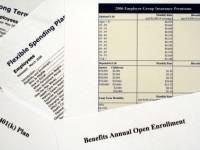As we previously detailed, a shareholder’s request for corporate books and records can raise competing concerns for the company and its directors. On the one hand, shareholders have a legal right under Section 220 to seek company records, and have been repeatedly encouraged by Delaware courts to exercise that right. On the other hand, because Section 220 requests are often a precursor to litigation – and because even innocuous documents can sometimes be used to bolster an otherwise baseless lawsuit – fiduciaries must ensure their response protects shareholder interests as a whole.
A string of recent Delaware decisions have added a new layer of complexity to these concerns. Going forward, Section 220 requests will likely become more common, and will potentially carry a larger downside for companies that fail to properly respond.
First, Delaware courts are increasingly insistent that shareholders seek corporate records before filing suit. In fact, the Delaware Court of Chancery recently went so far as to hold that if a shareholder fails to seek books and records before filing a derivative complaint, the court can assume that shareholder is unable to “provide adequate representation for the corporation.” That decision was later overturned by the Delaware Supreme Court, but by acknowledging “the trial court’s concerns,” the Supreme Court yet again reiterated its expectation that shareholders should request company records as a matter of first course. READ MORE →




